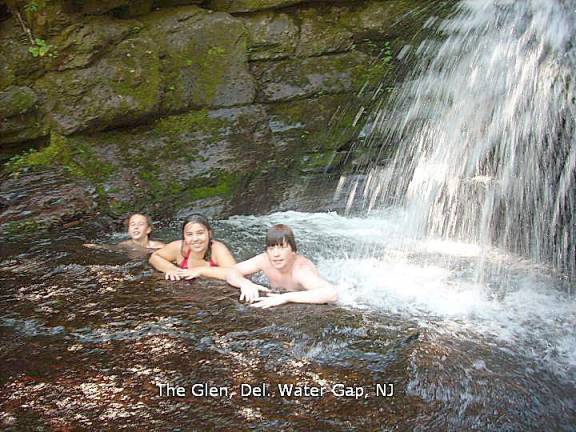Swimming hole dangers prompt New Jersey wildlife area closures
Trenton. Social media users in search of `’blue hole’’ swimming have helped drive an ‘unprecedented number of people to once-hidden spots so named because of the deep color of the water in some locations associated with old quarries.

New Jersey officials cracked down on unauthorized use of swimming holes in several places in the New Jersey Pinelands heading into the holiday weekend that marks the unofficial beginning of the summer season.
Social media users in search of ``blue hole’’ swimming have helped drive an ``unprecedented’’ number of people to once-hidden spots so named because of the deep color of the water in some New Jersey Pinelands locations associated with old quarries, The Philadelphia Inquirer reported.
There are no lifeguards at the swimming holes, which can be 50 to 100 feet deep in some areas, and several have seen drownings over the years, the paper said.
Fines up to $1,500
The New Jersey Division of Fish and Wildlife announced closures of several portions of the Wildcat Ridge, Greenwood Forest, Winslow, Cedar Lake and Menantico wildlife management areas, effective immediately and extending through Sept. 15. Violators faces fines of $50 to $1,500.
``Recently, these areas have attracted large crowds and unauthorized activities - including swimming and off-road vehicle use - creating an unsafe environment,`` officials said. They said the locations include former quarry pits where swimming is ``extremely dangerous due to the depth and low temperature of the water.``
Natural areas became increasingly popular during the pandemic
The spots draw not only swimmers, but also all-terrain vehicles, boaters, and hikers in search of locations ideal for posting on social media. Like many natural areas, they became increasingly popular during the pandemic, leading to complaints about large crowds litter.
The state’s wildlife management areas were originally funded by hunting and fishing licenses and were intended to preserve habitat, They grew in size with the addition of state Green Acre funds and the mission expanded to provide outdoor recreation, but the areas remain more rustic than state parks, the Inquirer said.
Officials said they regret having the close the areas and understand ``the frustration of law abiding users.``
``However illegal activities at these particular locations have reached a level that has created an unsafe situation for the public, as well as the limited number of conservation police officers available to patrol the areas,`` the division said.